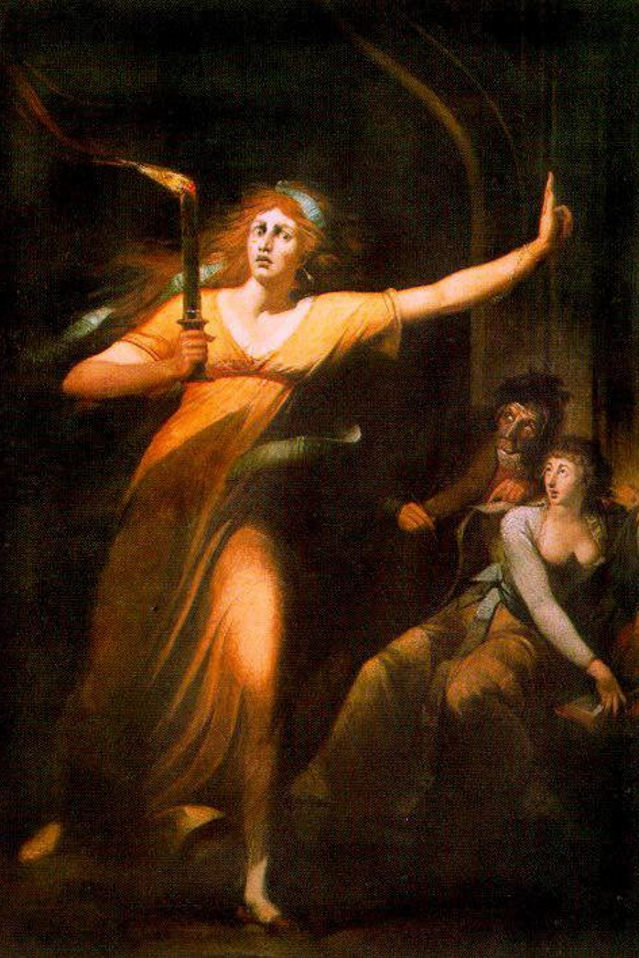

Not only is Lady Macbeth defying the norm of following her husband’s orders, but she is also defying the norms of how the women were to be seen and not heard during these times, yet Lady Macbeth has a substantial amount of talking at this part of the play. 69-71).īy asserting that she is the one that has to tend to plotting Duncan’s death, she is defying the norms of how the women were to follow the orders of their husband, not the other way around. Lady Macbeth is taking away from Macbeth’s masculinity by stating that he is not capable of doing what needs to be done, and asserting her own form of masculinity by telling her husband to leave all of the plotting up to her, “Only look up clear. And you shall put This night’s great business into my dispatch, Which shall to all our nights and days to come Give solely sovereign sway and masterdom”(I.V. Look like th’innocent flower, But be the serpent under’t. To beguile the time, Look like the time bear welcome in your eye, Your hand, your tongue. Lady Macbeth says, “Oh, never Shall sun that morrow see! Your face, my thane, is as a book where men May read strange matters. Lady Macbeth begins to become overwhelmingly engrossed with the thought of her husband having power, with the thought of him being Thane of Cawdor, so much so that her behavior starts to become ruthless when she realizes that she has to be the one to take matters into her own hands. Lady Macbeth knows that she can’t commit the murder because she is a lady, which means that she possesses the same quality as Macbeth, kindness. Lady Macbeth is saying that Macbeth possesses a feminine quality that leaves him incapable of committing murder. Joann Klein states in Lady Macbeth Infirm of Purpose The Woman’s Part: Feminist Criticism of Shakespeare, “It is Lady Macbeth, not Macbeth who feels the bonds of kind, Lady Macbeth who has, as women were supposed to have, something of the milk of human kindness in her” (Klein 246). It is odd that Lady Macbeth is referring to her husband as being too kind, when being kind is often characterized as a feminine characteristic. Thou wouldst be great, Art not without ambition, but without the illness should attend it”(I.V.
Lady macbeth full#
While Lady Macbeth knows that Duncan needs to die in order for Macbeth to become king, Lady Macbeth knows that Macbeth is too kind and tender-hearted to do what is needed, she says: “ Yet I do fear thy nature It is too full o’th’ milk of human kindness To catch the nearest way.

Finally, side by side as the last Celtic king and queen of Scotland, she and Macbeth must face the gathering storm brought on by their combined destiny.įrom towering crags to misted moors and formidable fortresses, Lady Macbeth transports readers to the heart of eleventh-century Scotland, painting a bold, vivid portrait of a woman much maligned by history.In act I scene V of the play, after Lady Macbeth has heard of Macbeth’s prophecy, she knows that her husband is too kind to do what needs to be done in order for him to become king, which is to murder Duncan. Among the powerful warlords and their steel-games, only Macbeth can unite Scotland–and his wife’s royal blood is the key to his ultimate success.ĭetermined to protect her small son and a proud legacy of warrior kings and strong women, Rue invokes the ancient wisdom and secret practices of her female ancestors as she strives to hold her own in a warrior society. Married to a powerful northern lord, she is widowed while still carrying his child and forced to marry her husband’s murderer: a rising war-lord named Macbeth. Encountering danger from Vikings, Saxons, and treacherous Scottish lords, Rue begins to respect the man she once despised–and then realizes that Macbeth’s complex ambitions extend beyond the borders of the vast northern region. Lady Gruadh, called Rue, is the last female descendent of Scotland’s most royal line. I have loved deeply and hated deeply, too. Struggled fiercely to bear my babes into this world. Daughter to a prince, a wife twice over, a queenĪs well.


 0 kommentar(er)
0 kommentar(er)
